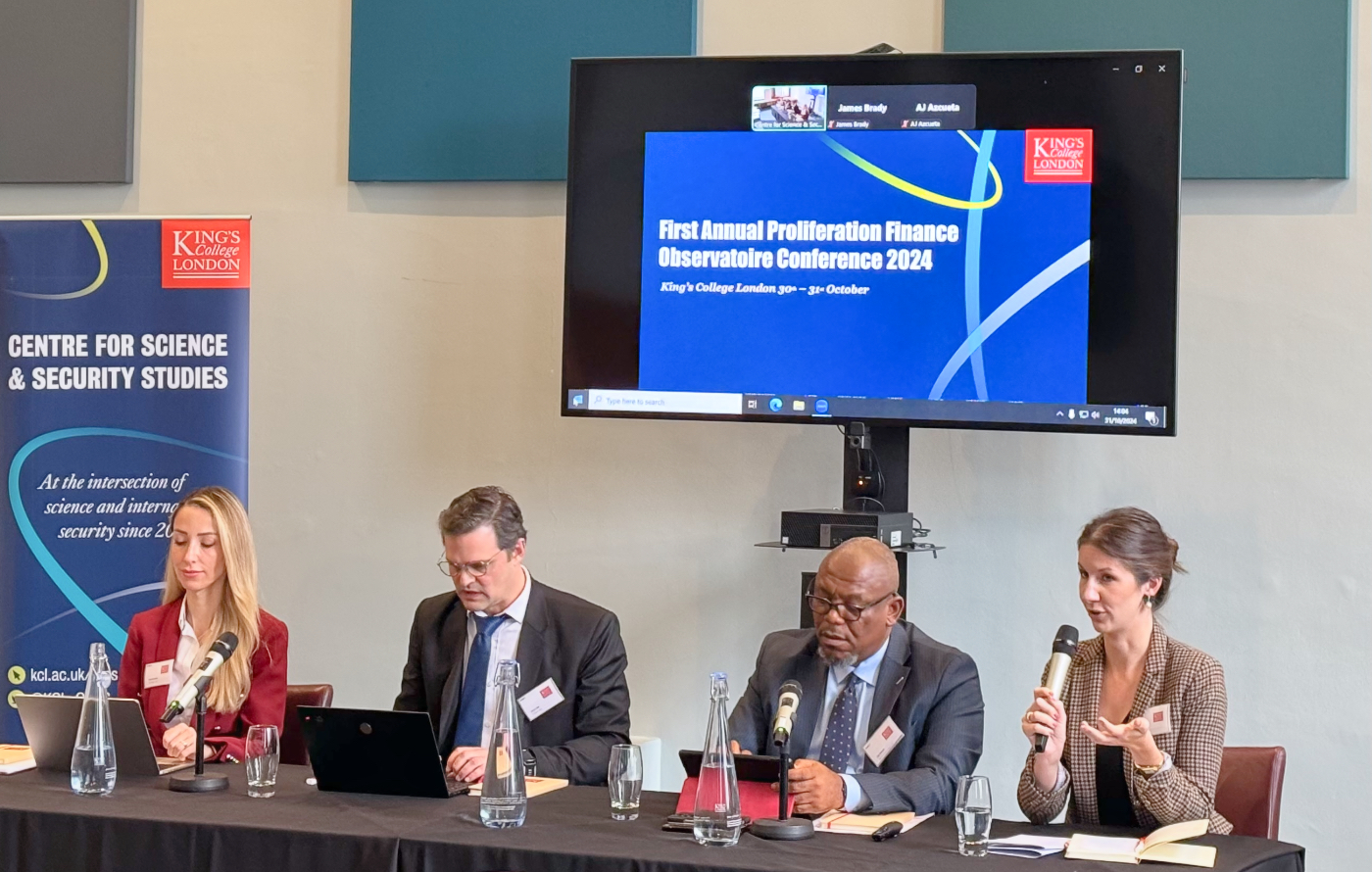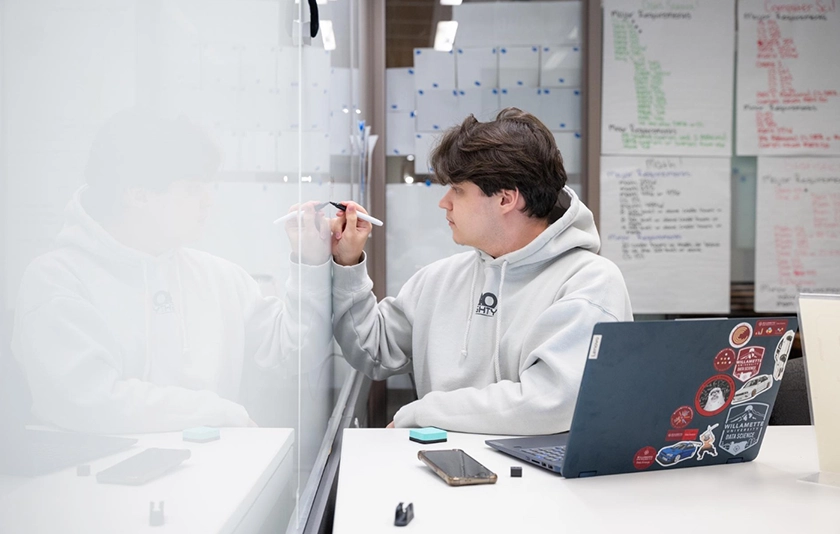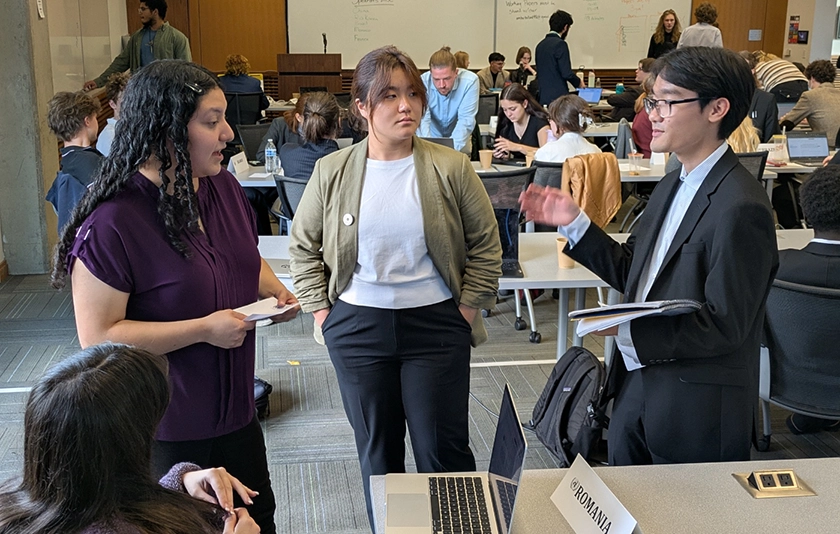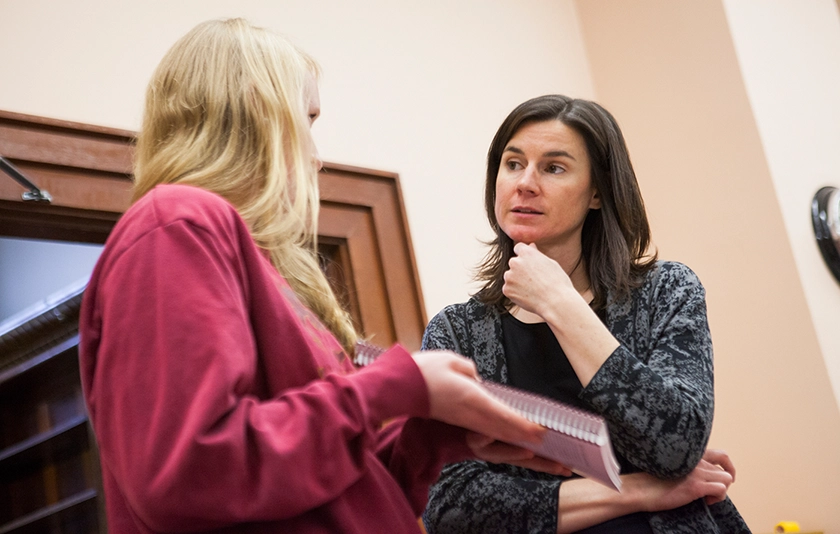Aubrey Grace Means BA’15 always knew she wanted a career with a global reach. Now, she’s helping policymakers in the federal government address some of the most significant issues related to nuclear energy — from the use of nuclear power and propulsion in space to containing the spread of nuclear weapons.
“Nuclear technology is potentially a huge boon for humankind, but it also could end life as we know it in a second,” Means said. “So it's a really hard balance.”
Means currently serves as a National Security Specialist at Pacific Northwest National Laboratory, a federally funded research institution that supports the U.S. Department of Energy and other federal agencies on addressing complex scientific and policy challenges associated with national security. In her role, she specializes in issues related to nonproliferation and nuclear security, international sanctions compliance and counterproliferation financing, space, and climate security.
At Willamette, interdisciplinary courses, a formative study abroad experience, and close faculty mentors helped start Means on her path toward addressing some of the most critical existential threats facing the globe.
A French and History double-major, Means came to Willamette hoping to travel and work internationally, inspired by her mother’s upbringing in Belgium. Studying the Cold War in her history classes sparked her interest in nuclear weapons. A strong foundation in French prepared her to achieve her dream of living abroad when she pursued a rigorous study abroad program at the Sorbonne in Paris. There, she honed her language skills and navigated the challenges of living abroad and studying in a second language.
“I remember very clearly coming back and thinking: ‘if I can do that, I can do anything,’” Means said.
The confidence Means gained from studying abroad was buoyed by her close relationships with her Willamette professors. She has fond memories sharing meals with E.J. Whipple Professor of History William Smaldone, and long conversations in the office or over coffee with Professor Emeritus of French Gaetano DeLeonibus.
“Both of them were not only great professors, but were mentors and friends to me,” Means says.
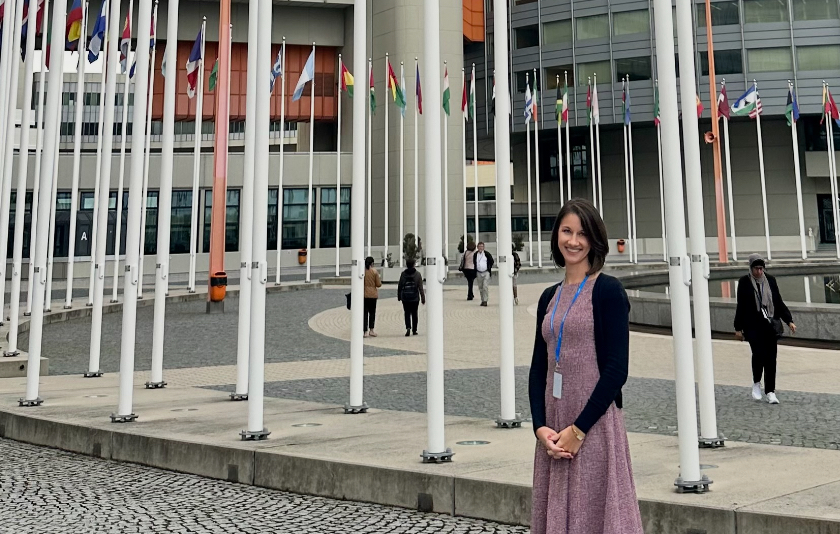
A lab course in Earth Science with Associate Professor & Chair of Environmental Science Katja Meyer pushed Means out of her comfort zone and helped her approach problems from a different perspective. That would later come in handy when Means had the chance to work at a research reactor in Prague during her graduate program in Nonproliferation and Terrorism Studies. In the lab, she worked as the only American, the only woman, and the only non-scientist in a lab full of nuclear physicists and engineers, despite her lack of scientific background.
“Willamette prepared me very well for graduate school in terms of workload and work-life balance,” Means said. “The skill set I had built over a few years at Willamette made my Master’s program pretty easy to step into. I was very thankful for that.”
Now supporting federal agencies on policy issues around nuclear weapons and energy, climate security, space, and international sanctions, Means remains optimistic about the future of the weighty issues she covers.
“What I do right now is challenging. I'm dealing with big issues that will not be solved by me or my colleagues alone. They may not even be solved in my lifetime, but they really matter,” Means said. “Climate change and nuclear disaster are, I personally believe, two of the most pressing existential threats of our age. And I consider myself very fortunate that I'm able to contribute — in my little way — to trying to prevent either one.”
Nuclear nonproliferation and arms control require an aspirational commitment to thinking beyond borders and self-interest. In the context of her work, Means finds inspiration in Willamette’s motto: “Not unto ourselves alone are we born.”
“The history of arms control is recognizing that if somebody loses, we all lose,” Means said.
“The famous phrase coined by Reagan and Gorbachev during the Cold War is ‘a nuclear war cannot be won, and so should never be fought.’ So how do we make sure we never fight it?”
